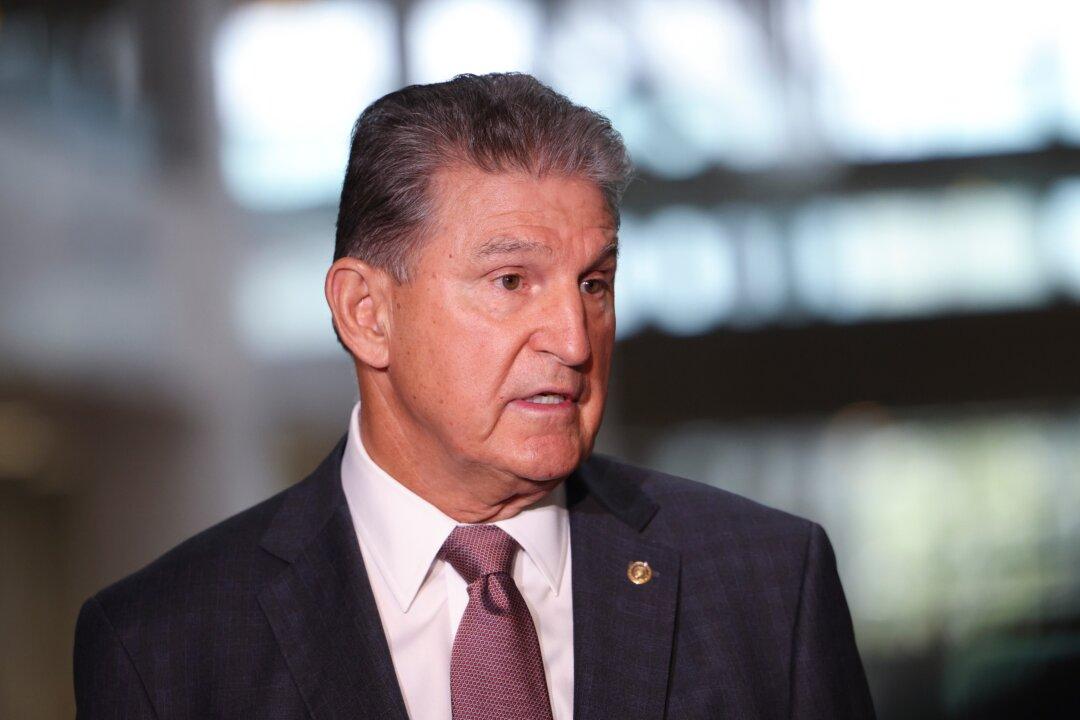Sen. Joe Manchin (D-W.Va.) reportedly opposes an effort by his party to give a $4,500 tax benefit to electric vehicles made in the United States by unionized manufacturers.
Currently, U.S. law provides some tax credits to individuals who purchase an electric vehicle, ranging from $2,500 on the low end up to $7,500 for qualifying vehicles. Democrats hope to expand that top line credit to $12,500 in their Build Back Better budget bill as part of a larger climate effort.





